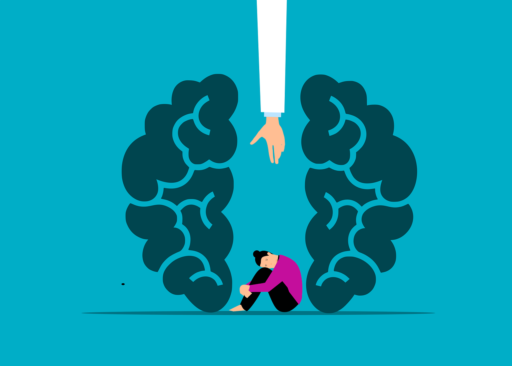Imagine the feeling of unease and restlessness that washes over you when you have to spend time away from your partner. The pangs of separation anxiety are a common occurrence in many relationships, and they can be both emotionally draining and mentally exhausting. This article “Separation Anxiety With Partner”, explores the intricacies of separation anxiety with your partner, delving into the underlying reasons behind this phenomenon and offering empathic guidance on how to alleviate the distress it may cause. Whether you’ve experienced this firsthand or are simply curious to learn more, this article aims to provide valuable insights into overcoming separation anxiety and fostering a healthier, more balanced relationship.
Understanding Separation Anxiety
What is Separation Anxiety?
Separation anxiety refers to the overwhelming fear or distress experienced when being separated from someone or something that you have formed a strong emotional attachment to. It is a common emotional response that can occur in various relationships, including romantic partnerships, friendships, or even between a parent and child. This intense fear of separation can significantly impact an individual’s emotional well-being and overall quality of life.
Causes of Separation Anxiety
Separation anxiety can stem from a variety of factors, and its development can vary from person to person. Some common causes of separation anxiety include:
- Attachment Styles: Your attachment style, which is largely influenced by your early caregiving experiences, can play a significant role in the development of separation anxiety. Those with anxious attachment styles tend to have a heightened fear of abandonment and separation, leading to stronger feelings of anxiety when faced with being apart from their partner.
- Past Experiences: Traumatic experiences involving separation or loss, such as the death of a loved one, divorce, or unexpected separations, can contribute to the development of separation anxiety. These experiences can lead to a fear of repeating past emotional pain and may make it difficult to trust that separations will not result in further emotional distress.
- Lack of Trust and Insecurity: Individuals who struggle with trust and have a generally insecure attachment style may be more prone to experiencing separation anxiety. Insecurity can arise from past relationship trauma or issues with self-esteem, and it can manifest as an intense fear of abandonment and rejection.
Signs and Symptoms of Separation Anxiety
Recognizing the signs and symptoms of separation anxiety is crucial in order to respond appropriately and address the underlying causes. Some common signs of separation anxiety include:
- Intense fear or distress: Feeling extreme fear or distress when faced with the prospect of separation from your partner or loved one.
- Physical symptoms: Experiencing physical symptoms such as rapid heartbeat, shortness of breath, nausea, or headaches when anticipating or experiencing separation.
- Avoidance behaviors: Engaging in behaviors to avoid separation, such as constantly checking in with your partner, avoiding situations that may lead to separation, or refusing to engage in activities without your partner.
- Difficulty functioning: Finding it challenging to carry out everyday tasks or focus on other areas of your life due to preoccupation with the fear of separation.
- Emotional instability: Experiencing heightened emotional distress, including feelings of sadness, irritability, or anger, when facing separation or uncertainty about the future of the relationship.
Factors Influencing Separation Anxiety
Attachment Styles
Attachment styles, which are formed in early childhood based on the quality of caregiving received, heavily influence an individual’s response to separation. Those with an anxious attachment style may have a heightened fear of abandonment and separation, leading to an increased likelihood of experiencing separation anxiety in their relationships.
Past Experiences
Previous traumatic experiences involving separation or loss can leave a lasting impact on an individual’s emotional well-being. Events such as the death of a loved one, divorce, or sudden separations can create a fear of separation and reinforce the belief that separations result in emotional pain and distress.
Lack of Trust and Insecurity
A lack of trust and general feelings of insecurity can contribute to the development of separation anxiety. Individuals who struggle with trust issues may have a heightened fear of abandonment and rejection, making them more susceptible to experiencing separation anxiety in their relationships.

Effects of Separation Anxiety
Emotional Toll
Separation anxiety can take a significant emotional toll on individuals, leading to heightened feelings of anxiety, fear, and sadness. It can cause a constant state of worry, preoccupation, and distress, thereby impacting overall emotional well-being and happiness.
Relationship Strain
The fear and distress experienced due to separation anxiety can strain a relationship. The constant need for reassurance, excessive clinginess, and avoidance of independence can put a strain on both partners, leading to decreased relationship satisfaction and a breakdown in communication.
Impact on Daily Life
Separation anxiety can have a profound impact on an individual’s daily life. It can make it difficult to engage in activities, maintain a healthy work-life balance, and pursue individual interests. The constant fear of separation can lead to a reduced quality of life, as one’s thoughts and actions become consumed by the anxiety.
Coping Mechanisms for Separation Anxiety
Open Communication
Open and honest communication with your partner is crucial in addressing separation anxiety. Expressing your fears and concerns, as well as discussing potential triggers or situations that worsen the anxiety, can help create a supportive and understanding environment.
Establishing Boundaries
Setting and maintaining healthy boundaries can be incredibly beneficial when dealing with separation anxiety. It is important to establish a balance between spending quality time with your partner and maintaining your individuality. Encouraging mutual independence and understanding can help alleviate some of the anxiety associated with separation.
Therapeutic Intervention
Seeking professional help, such as couples therapy or individual therapy, can provide valuable tools and strategies for managing separation anxiety. A therapist can help you explore the root causes of your anxiety, identify triggers, and develop coping mechanisms to navigate separations more effectively.

Building Resilience and Confidence
Self-care and Self-reflection
Engaging in regular self-care practices and self-reflection can significantly boost your resilience and confidence when facing separation anxiety. Taking time to focus on your own needs, practicing relaxation techniques, and engaging in activities that bring you joy can help you build emotional strength.
Development of Individual Interests
Nurturing individual interests outside of the relationship is essential for personal growth and independence. Pursuing activities that bring you fulfillment can help redirect your focus from separation anxiety to personal growth and development.
Seeking Support
Seeking support from loved ones, friends, or support groups can provide a valuable network for understanding and empathy. Sharing your experiences with others who have gone through similar struggles can help validate your emotions and provide a sense of community.
Effectively Managing Separation
Gradual Exposure
Gradually exposing yourself to separations can be an effective strategy for managing separation anxiety. Start with short separations and gradually increase the duration as you gain confidence in your ability to cope. This process allows you to build trust in yourself and your partner while challenging the irrational beliefs associated with separation anxiety.
Creating a Support System
Building a support system of trusted friends or family members can provide additional support when facing separations. Having someone to talk to, lean on, and seek advice from can help alleviate the anxiety associated with being alone.
Utilizing Technology
Harnessing the power of technology can help bridge the gap and reduce the anxiety associated with physical separation. Utilize video calls, phone calls, and messaging apps to stay connected with your partner during separations, creating a sense of closeness and security.

Professional Help for Separation Anxiety
Couples Therapy
Couples therapy can be a valuable resource for addressing separation anxiety within a relationship. A trained therapist can help both partners develop effective communication strategies, explore the underlying causes of separation anxiety, and provide guidance for developing a stronger and healthier bond.
Individual Therapy
Individual therapy is a useful tool for exploring and addressing the root causes of separation anxiety. A therapist can provide a safe and supportive space to work through past traumas, improve self-esteem, and develop coping mechanisms to manage anxiety in relationships.
Medication
In some cases, medication may be prescribed to help manage the symptoms of separation anxiety. Antidepressants or anti-anxiety medications may be prescribed, working in conjunction with therapy to provide relief and support.
Preventing Separation Anxiety
Early Detection and Intervention
Early detection of separation anxiety symptoms is crucial for preventing it from escalating. Recognizing the signs and seeking professional help at the earliest stages can lead to more effective intervention and minimize the impact on your overall well-being.
Building a Solid Foundation
Building a strong and healthy foundation within a relationship can help prevent the development of separation anxiety. Establishing trust, open communication, and a sense of security from the beginning can provide a solid framework for managing separations.
Enhancing Emotional Intelligence
Developing emotional intelligence is key to understanding and managing separation anxiety. By cultivating self-awareness, empathy, and effective communication skills, you can navigate separations with a greater sense of understanding and resilience.
Importance of Self-growth
Developing Personal Interests
Investing in personal interests and hobbies is crucial for personal growth and a healthy sense of self. Building a fulfilling life outside of the relationship can help reduce reliance on your partner and alleviate some of the anxiety associated with separation.
Establishing Independence
Developing a sense of independence within a relationship is essential for managing separation anxiety. Maintaining your own identity, interests, and activities promotes self-confidence and reduces the fear of being alone.
Maintaining a Healthy Sense of Self
A healthy sense of self is vital for navigating separation anxiety. Building self-esteem, setting boundaries, and practicing self-care are all integral components of maintaining a strong and resilient sense of self.
Dealing with Relapses and Setbacks
Recognizing Triggers
Recognizing and understanding the triggers that worsen separation anxiety is crucial in effectively managing relapses and setbacks. By identifying situations, thoughts, or emotions that exacerbate anxiety, you can develop strategies to address and minimize their impact.
Seeking Professional Support
During times of relapse or setbacks, seeking professional support becomes even more important. Whether through therapy sessions or support groups, leaning on professionals who specialize in anxiety management can provide invaluable guidance and tools for navigating difficult periods.
Rebuilding Trust and Security
When setbacks occur, rebuilding trust and security within a relationship is essential. Open and honest communication, reassurance, and the establishment of healthy relationship boundaries can help restore a sense of safety and stability.
In conclusion Separation Anxiety With Partner
By understanding the causes, effects, and coping mechanisms associated with separation anxiety, individuals can work towards building resilience, maintaining healthy relationships, and achieving personal growth. With professional support, self-care, and effective communication, overcoming separation anxiety is possible, allowing individuals to lead fulfilling lives free from the constraints of fear and distress.
Frequently Asked Questions:
Q1: Can you have separation anxiety from your partner?
Yes, it’s possible to experience separation anxiety from your partner. This emotional response may arise when faced with the prospect of being apart, triggering feelings of distress or unease.
Q2: How do I calm my separation anxiety?
Calming separation anxiety involves acknowledging and addressing the underlying fears. Establishing open communication with your partner, practicing self-soothing techniques, and gradually increasing time apart can be helpful.
Q3: What are the three stages of separation anxiety?
The three stages of separation anxiety often include protest, despair, and detachment. Initially, there may be resistance or protest to separation, followed by a sense of despair, and eventually, a detachment as coping mechanisms develop.
Q4: Why do I have anxiety about my partner leaving me?
Anxiety about a partner leaving can stem from various sources, such as past experiences, attachment styles, or fears of abandonment. Understanding the root causes and working collaboratively with your partner or seeking professional support can aid in managing these anxieties.
Sources:
- Source 1. Separation Anxiety With Partner
- Source 2. Anxiety
- Source 3. Anxiety Treatment
- Source 4. Anxiety Symptoms
- Source 5. Anxiety Medication